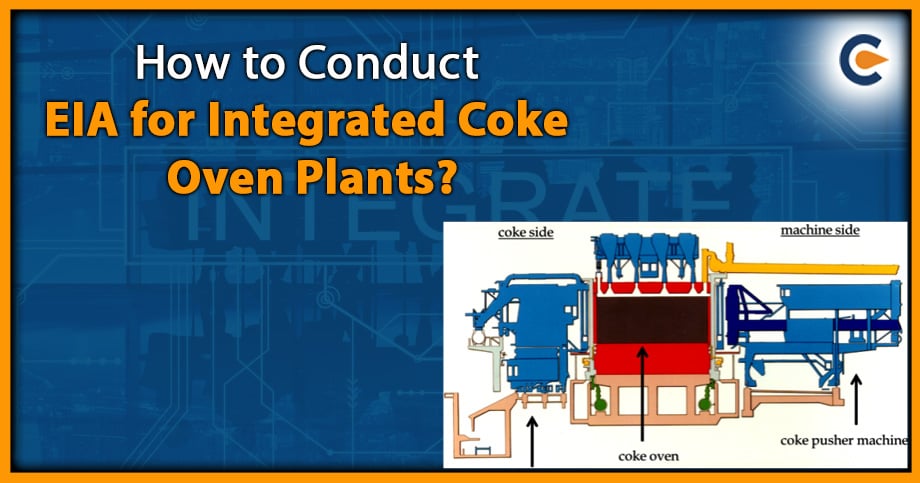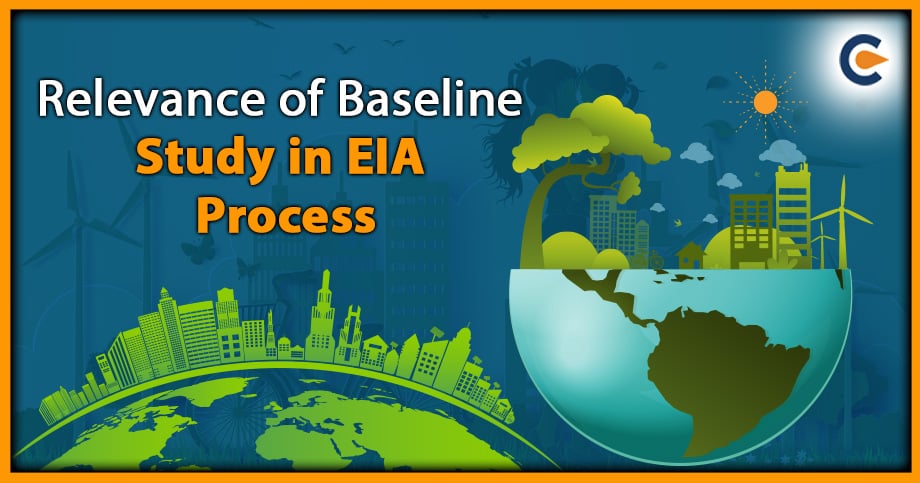The regulatory framework of EIA for Integrated Coke Oven Plants in India is governed by the EIA Notification, 2006, issued by MoEFCC under the Environment (Protection) Act, 1986. According to the notification, Integrated Coke Oven Plants fall under Category ‘A’ projects, requiring mandatory environmental clearance from the MoEFCC. A comprehensive and detailed EIA study is critical to identifying all potential environmental impacts of a coke oven plant. The study should consider all relevant factors, including air and water quality, solid waste management, and socio-economic impacts. The EIA for Integrated Coke Oven Plants should also be conducted by qualified professionals and in compliance with regulatory requirements.
Regulatory Requirement While Conducting EIA for Integrated Coke Oven Plants
The regulatory requirements for obtaining EIA for Integrated Coke Oven Plants are as follows:
- Submission of Project Proposal: The project proponent must submit a proposal to the regulatory authorities, providing details on the location, capacity, raw materials, process technology, and other relevant project details.
- Conduct of EIA Study: The proponent must conduct a comprehensive EIA study, including a baseline study of the existing environmental conditions of the project site and surrounding areas, identification and assessment of potential environmental impacts, and development of mitigation measures to address the potential impacts.
- Public Consultation: The proponent must conduct a public consultation with the local community and other relevant stakeholders to obtain feedback on the project and address any concerns raised during the consultation process.
- Submission of Environmental Impact Assessment Report (EIAR): Based on the results of the EIA study, the proponent must prepare an Environmental Impact Assessment Report (EIAR), which should provide details on the potential environmental impacts of the project, the proposed mitigation measures, and the results of the public consultation process.
- Review of EIAR by Expert Appraisal Committee (EAC): The EIAR is reviewed by the Expert Appraisal Committee (EAC) constituted by the MoEFCC. The EAC provides recommendations on environmental clearance based on the EIAR and other relevant documents.
- Issuance of Environmental Clearance: Based on the recommendations of the EAC, the MoEFCC may issue an environmental clearance for the project, with conditions and mitigation measures to be implemented by the proponent.
- Compliance and Monitoring: The proponent must comply with the conditions outlined in the environmental clearance and regularly monitor and report on the project’s environmental impacts.
Overall, the regulatory framework for EIA for Integrated Coke Oven Plants in India is designed to ensure that these projects are developed in an environmentally sustainable and responsible manner, considering the potential impacts on air and water quality, solid waste management, and socio-economic factors.
Documents Required Prior To Conducting EIA for Integrated Coke Oven Plants
To obtain Environment Clearance for Coke Oven Plants in India, the following documents are genrally required to be submitted by the proponent of the project:
- Project Proposal: A detailed project proposal providing information on the location, capacity, raw materials, process technology, and other project detail
- Pre-Feasibility Report: A pre-feasibility report provides information on the project’s technical feasibility, economic viability, and environmental sustainability.
- Environmental Impact Assessment Report: A comprehensive Environmental Impact Assessment Report (EIAR) providing details of the potential environmental impacts of the project, including air, water, and noise pollution, solid waste management, and socio-economic impacts. The EIA for Integrated Coke Oven Plants should also include details of the mitigation measures proposed to minimize the project’s potential environmental impacts.
- Executive Summary of EIAR: An executive summary of the EIAR containing key findings, conclusions, and recommendations.
- Public Consultation Report: A public consultation report providing details of the public consultation process, including the stakeholder identification, consultation methods, feedback received, and measures proposed to address concerns raised by stakeholders.
- Baseline Data: Baseline data on the environmental and socio-economic conditions of the project site and surrounding areas, including air and water quality, soil characteristics, flora and fauna, and socio-economic conditions.
- Environmental Management Plan: A detailed environmental management plan outlining the measures proposed to manage and mitigate the project’s potential environmental impacts.
- Environmental Clearance Application Form: A completed environmental clearance application form with all required information and signatures.
- Other Relevant Permits and Clearances: Any other relevant permits and clearances required for the project, such as land use clearance, consent to establish, and consent to operate.
Note – The exact requirements for documents for EIA for Integrated Coke Oven Plants may vary depending on the project and regulatory requirements, and the proponent should consult with the relevant regulatory authorities to determine the specific requirements for their project.
Process to Obtain Environmental Clearance for Coke Oven Plants
In India, the process to obtain Environmental Clearance for Coke Oven Plants is governed by the EIA Notification, 2006, issued under the Environment (Protection) Act, 1986[1]. The notification was subsequently amended in 2009 and 2018. The regulatory process for obtaining environmental clearance for a Coke Oven Plant includes the following steps:
Step 1: Submission Of Project Proposal and Pre-Feasibility Report: The project proponent must submit a project proposal and a pre-feasibility report to the MoEFCC or State Level Environmental Impact Assessment Authority (SEIAA). The report should contain project details, including location, capacity, raw materials, and technology used.
Step 2: Conducting A Comprehensive EIA Study: The proponent is required to conduct a comprehensive EIA study, which includes identifying and evaluating the potential environmental impacts of the project. The study on EIA for Integrated Coke Oven Plants should consist of baseline data collection, impact assessment, and the development of an environmental management plan.
Step 3: Public Consultation: The proponent is required to conduct a public consultation with stakeholders, including local communities, NGOs, and other interested parties. The consultation should be conducted at the project site and nearby areas to obtain feedback on the project’s potential environmental impacts.
Step 4: Submission of Environmental Impact Assessment Report: The proponent is required to submit an Environmental Impact Assessment Report (EIAR) to the MoEFCC or SEIAA. The EIAR should contain details of the EIA study, public consultation, and the proposed mitigation measures to minimize the project’s potential environmental impacts.
Step 5: Review And Clearance: The MoEFCC or SEIAA will review the EIAR and issue environmental clearance if the project is found to be environmentally sustainable and compliant with applicable environmental regulations and standards.
Step 5: Compliance Monitoring: The proponent is required to comply with the terms and conditions of the environmental clearance and submit periodic compliance reports to authorities to demonstrate compliance with environmental regulations and the terms of the environmental clearance.
Conclusion
EIA for Integrated Coke Oven Plants is a critical regulatory requirement in India. The process of obtaining EIA involves a detailed assessment of the potential negative implication of the project on the environment and the development of a comprehensive environmental management plan to mitigate these impacts. The EIA process helps to ensure that coke oven plants are developed in an environmentally sustainable and responsible manner, considering the potential impacts on air, water, and soil quality, solid waste management, and socio-economic factors. The regulatory process for obtaining environmental clearance for coke oven plants in India is governed by the EIA Notification, 2006. The EIA process for coke oven plants plays a crucial role in ensuring that the development of coke oven plants is aligned with environmental sustainability and meets the country’s regulatory requirements.
Also Read:
How To Do An Assessment Of The Environmental Impacts Of A Project?











